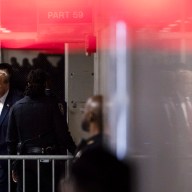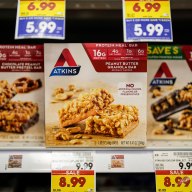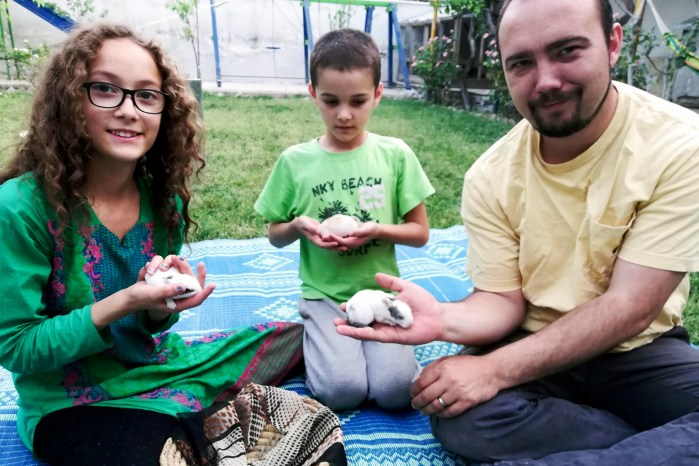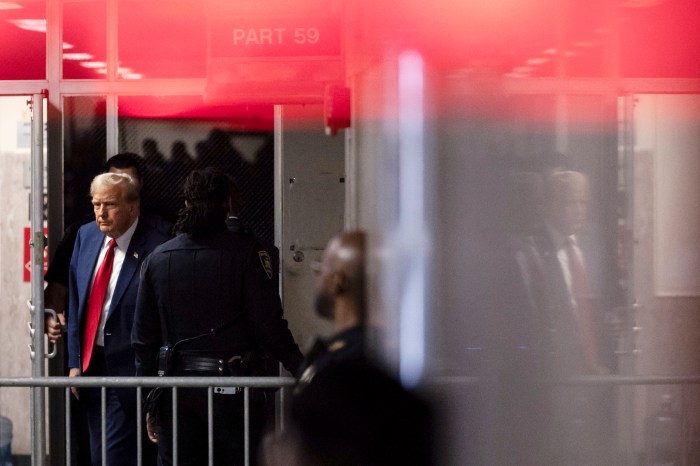NEW YORK – In the debut episode of “NYC Prep,” Bravo’s new water cooler reality series about the young and rich, two teenagers hang out in a sleek lounge – their after-school version of IHOP.
A debate ensues over the value of the children’s charity Operation Smile, which helps repair the cleft lips and palates of the less fortunate.
“There are so many other things that are going on in the world that need to be addressed before … cleft palate!” sniffs Peter “PC” Peterson to his best friend, Jessie Leavitt, who was planning a fundraiser for the global nonprofit.
Leavitt, exasperated over Peterson’s cluelessness, responds, “Roll your eyes one more time, PC, and I swear to God I’ll slap you in the face.”
Cut to another scene: Peterson, 18, further annoys Leavitt, 17, by tossing a water bottle at her. She storms off in a huff. He calls her a bad word. They make up, like, 30 seconds later.
Welcome to “Prep,” where city kids grow up fast – but still act like kids.
The show, already getting tons of online buzz ahead of Tuesday’s premiere, offers a glimpse into the lives of wealthy New York teens from various prep schools. They dine at stylish restaurants, charge designer clothes on credit cards and talk bluntly about sex and drugs. Some are so jaded, they could give the “Gossip Girl” clique a run for its money.
With parents’ permission, producers recruited six uptown subjects, ranging in age from 15 to 18: Peterson, the grandson of billionaire financier and philanthropist Pete Peterson; Leavitt, an imposing fashion addict who boasts having a personal shopper at Barneys since she was 13; Kelli Tomashoff, an aspiring singer who lives with her brother on the Upper East Side while her parents stay in the Hamptons; Sebastian Oppenheim, a charmer who tries to hook up with as many girls as possible; Camille Hughes, a high-achieving junior aiming for Harvard; and Taylor DiGiovanni, the lone public school student of the cast, who aims to marry rich.
Executive producer Lenid Rolov, who has worked on MTV’s “The Hills” and Bravo’s “The Real Housewives of New York City,” says he jumped at the chance to produce the show. He grew up working-class in Manhattan and was always drawn to the prep school mystique.
“You see these kids all the time and, to me, they were kind of like storybook characters,” he recalls. “Because, they kind of looked perfect. You imagine them to have lives that are like a cross between ‘Dynasty’ and ‘Leave It to Beaver.’ But I never got to really interact with them other than what I saw on television.”
According to Rolov, the casting process wasn’t easy, and they hit the streets with fliers, navigated Facebook and worked connections in the community.
“I think we ended up sitting in just about every penthouse apartment on Park Avenue talking to parents,” he says.
Rolov says the parents on board were closely involved during production, and they knew what and when the show was filming. The show did not contact the kids during school hours. As in the former MTV series “Laguna Beach,” which centred on the drama among popular teens in upscale Orange County, Calif, classroom footage is absent – so are most parents.
Yet the blogs are buzzing, “Gossip Girl”-style. Recently, Time Out New York’s Web site published a letter from Hughes’ school, Nightingale-Bamford, which criticized “Prep”-style programming as “a skewed version of our world.” In a recent interview, several cast members declined to discuss their schools’ reaction to the show.
“We’re human,” says Leavitt, looking tall – and slightly intimidating – in a black romper and platform wedge heels. “We have been categorized into this rich, spoiled type of group and, you know, we are really hardworking, which kind of sets us apart from maybe a ‘Laguna Beach’ because, I mean, we work really really hard.”
Leavitt means business – she wants to be a fashion publicist – and intends to use this platform to raise her profile. Same with the show’s resident womanizer, Oppenheim. He wants to be a journalist, although he lacks a filter when proclaiming on camera: “Girls like it if you’re an (expletive).”
But Oppenheim, who in the pilot episode flirts up two female cast mates and speaks French to another prospect, insists during an interview that he’s toning down his game and “trying to take it easy.”
The perceived glamour, bratty entitlement and over-the-top spending habits of The Young And The Privileged have long been explored in American pop culture and a fascination for those who consume it. From “Pretty in Pink” to “Clueless” to “Gossip Girl,” moneyed youth appear to wield all the power, popularity and seduction techniques.
Frequently, rich kids on TV and the big screen are initially cast in a negative light, by turns glamorized, parodied and pilloried. Sometimes, such as James Spader in “Pretty in Pink,” they are shallow jerks who eventually get brought down; the well-to-do white knight (in the angelic form of Andrew McCarthy) rescues Molly Ringwald, the misfit from the wrong side of the tracks.
“In the ’80s, wealthy was very bad. If you were a ‘Richie,’ especially in the John Hughes films, you were evil,” says Timothy Shary, a professor of film studies at the University of Oklahoma and author of the book “Generation Multiplex: The Image of Youth in Contemporary American Cinema.”
As Shary sees it, 1990s-era movies and TV shows were generally more accepting of upper-middle-class teens. See: “Clueless,” “Beverly Hills, 90210” and even “Saved by the Bell.” These days, in this recession, the tides are seeming to rise against “the corruption of wealth” in shows about or targeted at young people, Shary said.
In the CW’s “Gossip Girl,” the uber-corrupt, mega-rich bad boy happens to be the fan favorite. He is Chuck Bass (Ed Westwick), a seemingly soulless playboy who masks a soft heart. Viewers love to love him, despite his villain qualities (like sleeping with his best friend’s girl).
“It’s just easier to portray them as snobs … buying cars, cool cars, driving around, getting all the girls they want, doing a ton of drugs, partying,” Oppenheim says. “It’s just an easy way to create, like, a really cool fictional character.”
On reality TV, these “characters” often translate to glossy escapism amid a fragile economy. Programs such as “Prep,” “The Hills” and “The Real Housewives” franchise – showing teens and adults behaving like them – give vicarious thrills, while teaching the time-honored lesson: Money doesn’t buy happiness.
These shows provide “psychological comfort to say, ‘I may not have the personal shopper at Barneys or the most expensive bag or … the $4 million apartment on the Upper East Side, but I’m better,”‘ says Anna David, a reality TV expert and author who is writing an anthology of the genre. “I’m better off. I’m happier. I’m a better person than they are.”
At least from the outset, “Prep” isn’t train-wreck TV. The kids seem eerily confident and self-aware. Although Bravo has marketed the show as a real-life “Gossip Girl,” they dis the popular book-and-TV franchise as fiction; but they’re content to demonstrate how the other half really lives.
“We have nothing to do with ‘Gossip Girl,”‘ says Oppenheim, to which Tomashoff chimes in: “They’re a lot older than us.”
Getting fired up, Leavitt adds: “Yeah, they’re like 25, 24! And people are like, ‘Why don’t they look like the people on “Gossip Girl”?’ We’re 18. Sorry!”
–
Bravo is a division of NBC Universal, a unit of General Electric Co.
–
On the Net:


















